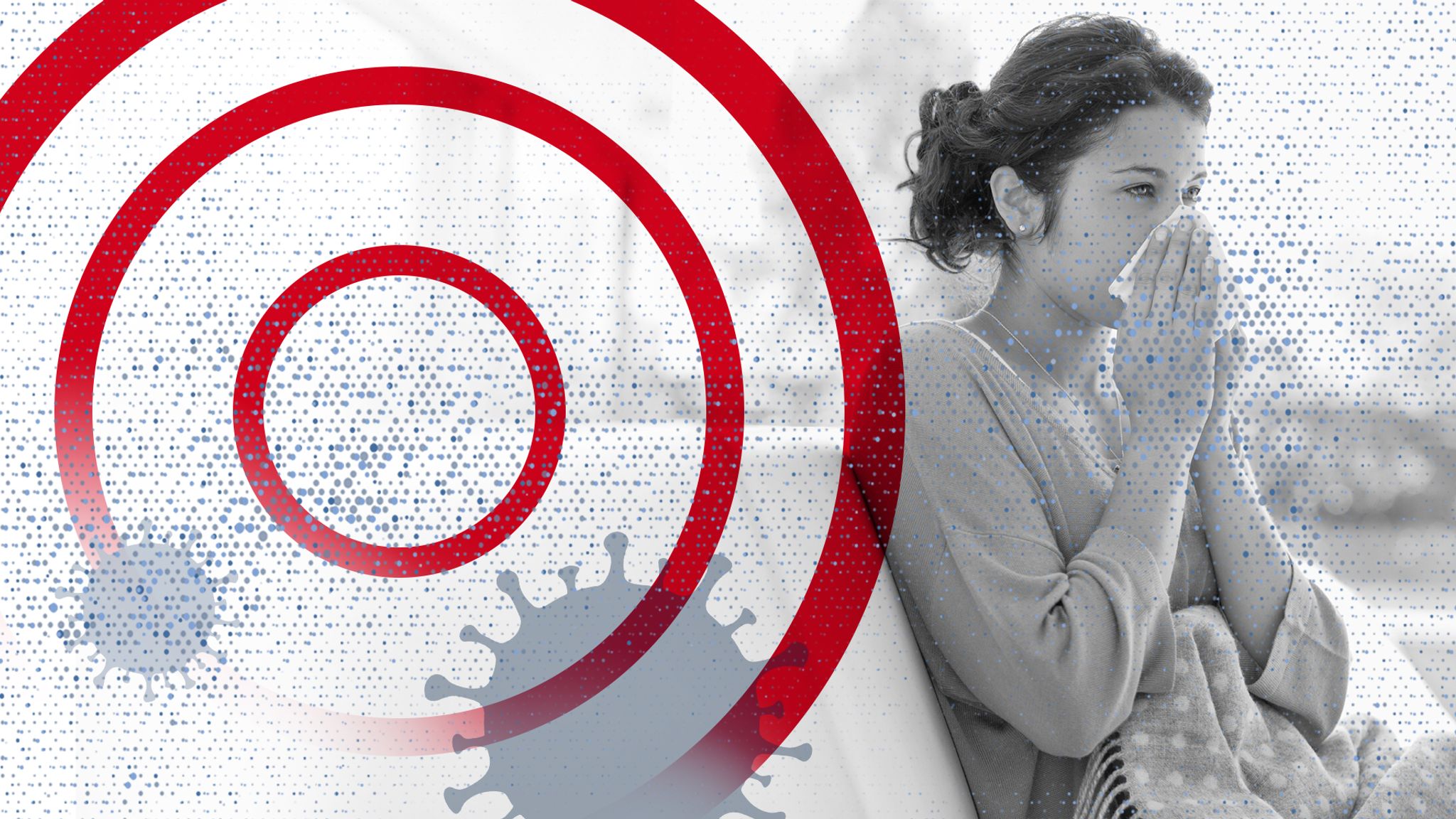30-Second Summary
- The ongoing pandemic has damaged the mental health of individuals globally, with depression reaching new heights of prevalence.
- The reason for pandemic depression is the trauma we have suffered through sickness, isolation, personal loss, or financial losses.
- While the pandemic lingers, we must take charge of our mental health to avoid long-term complications like dementia.
- Some tips to cope with pandemic depression include getting enough sleep, following routine, memory-boosting activities, and connecting with people.
- Protecting your mental health is also crucial if you are a caregiver for a sick loved one.
- By focusing on self-care and relaxation, you can cope with this challenging phase.
Introduction – The Rise In Depression Due To The Ongoing Pandemic
The ongoing pandemic has damaged the mental health of individuals globally. Be it the trauma of losing a loved one, suffering income loss, or isolating when sick, the pandemic has created various circumstances for depression and anxiety. Plus, the extended nature of this pandemic, which has now spanned over two years, aggravates these symptoms. We are disconnected from our loved ones, and our way of life has changed drastically. This has left our minds in a vulnerable state.

This perpetual state of anxiety, stress or depression can have long-term and short-term repercussions. You may face extreme fatigue, lack of energy, and brain fog. In the long run, these symptoms can trigger severe mental health disorders and decrease your quality of life. You need to take some actions to calm your mind and body to cope with these difficult times.
7 Mental Health Tips To Handle Pandemic Depression
- Maintain A Daily Routine – Having a daily routine offers a sense of control over your life that can help you cope with pandemic depression. Studies recommend following a basic routine comprising hygiene, meals, and sleeping to minimize pandemic depression. While your secondary routine, which could involve going to the gym, meeting friends, or traveling, might be disrupted due to the pandemic, the basic regimen will offer you a sense of calm and structure.
A common symptom of depression is the lack of will to get out of bed in the morning. When you have this simple to-do list for the day, you might garner more motivation to fight against this symptom.
- Connect With People Online – For many of us, social interactions have not been the same since the beginning of the pandemic. A common tip on how to manage anxiety is to mingle with friends, but it may not be possible at the moment. If it is impossible for you to connect with your loved ones physically because of social distancing norms, use technology to your advantage. Video calls may not sound as appealing, but once you get used to them, they can be a stress buster.
To make the calls more interesting, you can start an online book club or movie club with your loved ones. Even a weekly call to spill out your thoughts will improve your mental health.
- Maintain A Gratitude Journal – Nothing may seem to be going your way during this pandemic. It can be extremely hard to look for a silver lining when dealing with poor mental and physical health as well as personal losses. However, maintaining a gratitude journal can help you look for the few positives during these bleak times. Whether you are struggling with functioning depression and anxiety or your energy levels are at an all-time low, gratitude and optimism can help you brave this storm. List down anything that you are grateful for in your journal daily. The small positives can induce a sense of calm and boost your mental health.
- Practise Memory-Boosting Activities – Studies have found that depression in young adults increases the risk of dementia in old age. Hence, it is crucial to indulge in brain-boosting activities to sharpen your memory. Depression and anxiety can often be accompanied by brain fog and memory loss, but brain-boosting activities can help you overcome these symptoms. Some activities that you can try are solving puzzles, playing an instrument, and meditation.
You can also take this as an opportunity to learn a new language or master a new instrument while you isolate yourself at home. Not only will these activities keep you engaged, but they will also boost your cognitive abilities and enhance your skillset.
- Try To Sleep Better – Sleep is the best natural way to improve memory, reduce depression, and rejuvenate your spirit. Not only does a good night’s sleep offer ample energy for the next day, but it is also the time for your brain to heal. You must try to get enough hours of sleep each night. You can build a calming nighttime routine to encourage better sleep.
Start with a relaxing bath with soothing essential oils. Then, spend some time journaling or reading your favorite books away from screens. Light an aromatic candle and play some calming music in the background to help your brain fall asleep faster. This bedtime routine will ensure that you wake up in better spirits the next day.
- Live In The Present – Overthinking and worrying about the future is human, especially in these uncertain times. However, the more you focus on your present, the healthier your mind will be. The future is always out of our control, and thinking about it might make you feel powerless. Instead, focus your energy on the things that you can control today to make your life better.
Living in the present instead of worrying about the future will help you manage your current life. You will feel more empowered and improve your quality of life by focusing on today’s problems. So, try to avoid negative thoughts about the future and live each moment to the fullest.
- Reach Out For Help – You may hesitate to reach out to your loved ones or a professional when struggling with mental health issues. Especially if you are dealing with high functioning depression and anxiety, you may feel that it is just a passing phase. However, taking appropriate actions for your mental health is essential, as it will protect you against future complications like dementia and other degenerative disorders.
So, if you are feeling that your mental health is declining, do contact a therapist and reach out to your loved ones for support. You can also join support groups online to connect with people going through the same and learn from their experiences. Accept your mental health issues and move forward on the path of recovery!
Tips For Caregivers To Manage Mental Fatigue And Anxiety
Caregiver fatigue and depression are common outcomes of the pandemic. As a caregiver tending to a sick loved one, you may not realize that your health could be declining as well. Here are some tips that you must follow to ensure that you are healthy and mentally energized while taking care of others.
- Do Not Reject Help – It is natural to want to manage everything on your own when taking care of a loved one. However, this can be the perfect recipe for disaster, leading to caregiver fatigue and depression. To prevent this, accept the help of friends and family members who are willing to support you. You can administer the high-priority tasks by yourself but delegate simpler tasks to others.
If you do not have friends around, consider hiring some help for the easier household chores. This way, you will get ample time to calm your mind and body to be able to help the patient in the best possible way.
- Join A Support Group – Numerous caregivers around the world may be experiencing the same struggles as you! Connect with them via a support group to share your troubles and learn new coping strategies. Someone in your shoes might be able to tell you how to manage anxiety to prevent long-term side effects like dementia.
You may also learn tips on how to plan your day better around the patient’s schedule while accommodating time for self-care. The journey always becomes easier with a companion by your side. Therefore, leaning on a support group with fellow caregivers will help you soldier through this challenging phase.
- Prioritize Your Own Health Too – Ignoring your mental and physical health while fulfilling the duties as a caregiver is a rookie mistake. Neglecting the signs of stress, anxiety, and depression can cause long-term complications like dementia. So, take some time out every day to relax your mind and body. You can also try any natural way to improve memory, like puzzles or crosswords. You may also try some natural based memory supplements like neuriva, it can help you overcome these symptoms and also help you boost your memory.
They will distract you from the stress of caregiving and boost your mental health. Also, try to eat healthy meals and get enough sleep daily. By incorporating some relaxing rituals into your daily routine, you will be in better shape to take care of others while safeguarding your long-term health.
Conclusion
Besides disrupting physical health, the pandemic has had a significant impact on our mental health as well. Depression has become much more prevalent over the past couple of years due to the physical, emotional, and financial trauma we have suffered. Feelings of isolation, loss, and uncertainty have left us emotionally burdened. As the pandemic continues to linger, we need to find ways to cope with depression in these testing times.
Some ways to keep depression and anxiety at bay are to follow a routine, keep a gratitude journal, and engage in brain-boosting activities. By following these strategies to boost your mental health, you can overcome some of the symptoms of pandemic depression. So, try out these tips to improve your mental health and gear up to enjoy a healthier future!
References
- https://www.cnbc.com/2021/10/10/depression-increased-during-covid-pandemic-how-to-feel-better-cope.html
- https://www.kff.org/coronavirus-covid-19/issue-brief/the-implications-of-covid-19-for-mental-health-and-substance-use/
- https://healthmatters.nyp.org/how-to-avoid-depression-during-the-coronavirus-outbreak/
- https://www.forbes.com/sites/stephaniesarkis/2020/12/20/how-to-cope-with-pandemic-anxiety-depression-and-loneliness/?sh=3c5619d411da

Nancy Bonney is a health blogger and the founder of her own blog about fitness. She has been blogging for three years now and loves to share what she learns with others. Nancy enjoys reading, cooking, and staying active outdoors.












